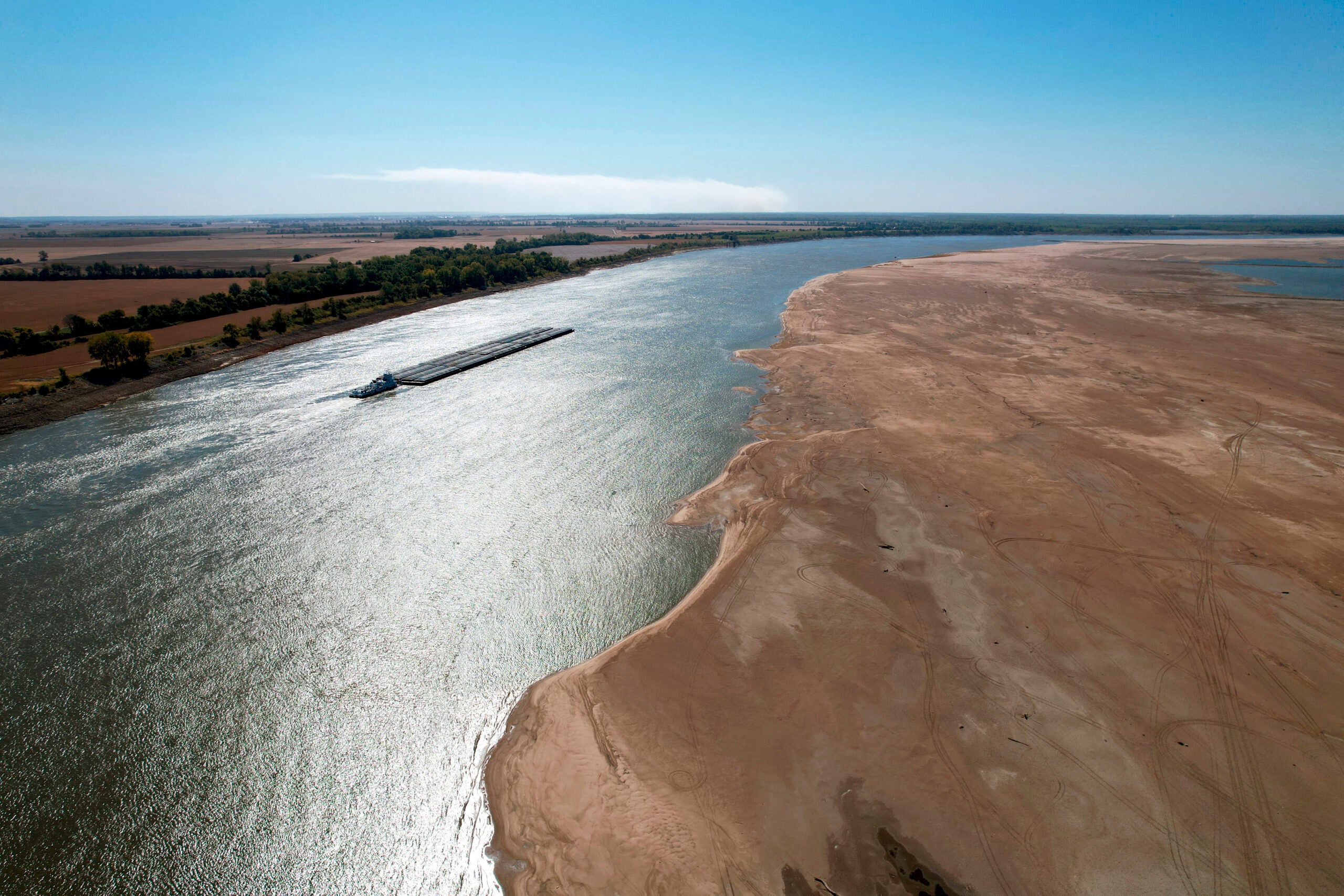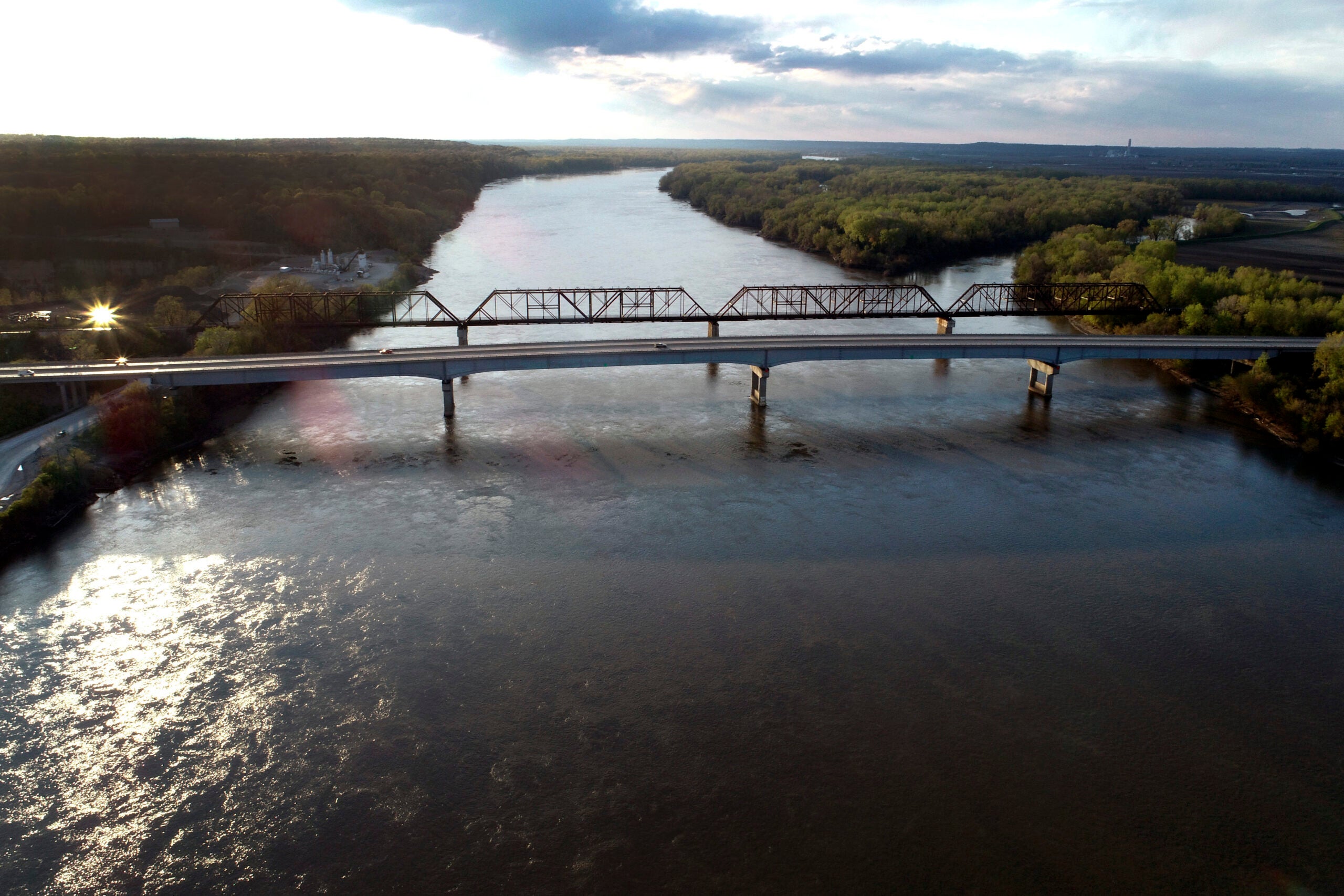A group of community leaders along the Mississippi River has taken the first step toward developing a multi-state agreement to manage and protect water from diversions to dry southwestern states.
Mayors from communities along the river approved a resolution to develop a Mississippi River Compact that would include 10 states, the action taken during the annual meeting of the Mississippi River Cities and Towns Initiative in Bemidji. Colin Wellenkamp, the group’s executive director, said they hope a regional approach will provide better management of water resources and protect the river.
“We’re worried about anybody that wants to put a straw in the Mississippi or already has one,” Wellenkamp said.
News with a little more humanity
WPR’s “Wisconsin Today” newsletter keeps you connected to the state you love without feeling overwhelmed. No paywall. No agenda. No corporate filter.
Last year, Arizona Gov. Doug Ducey signed a bill that would spend more than $1 billion over three years to bolster water supplies and investigate pumping flood waters from the Mississippi River to the Colorado River. Arizona is one of three states that agreed to cut back use of the Colorado River in August. An ongoing megadrought made worse by climate change and growing demand for water have stressed the Colorado River, which spans seven states and provides drinking water to 40 million people.
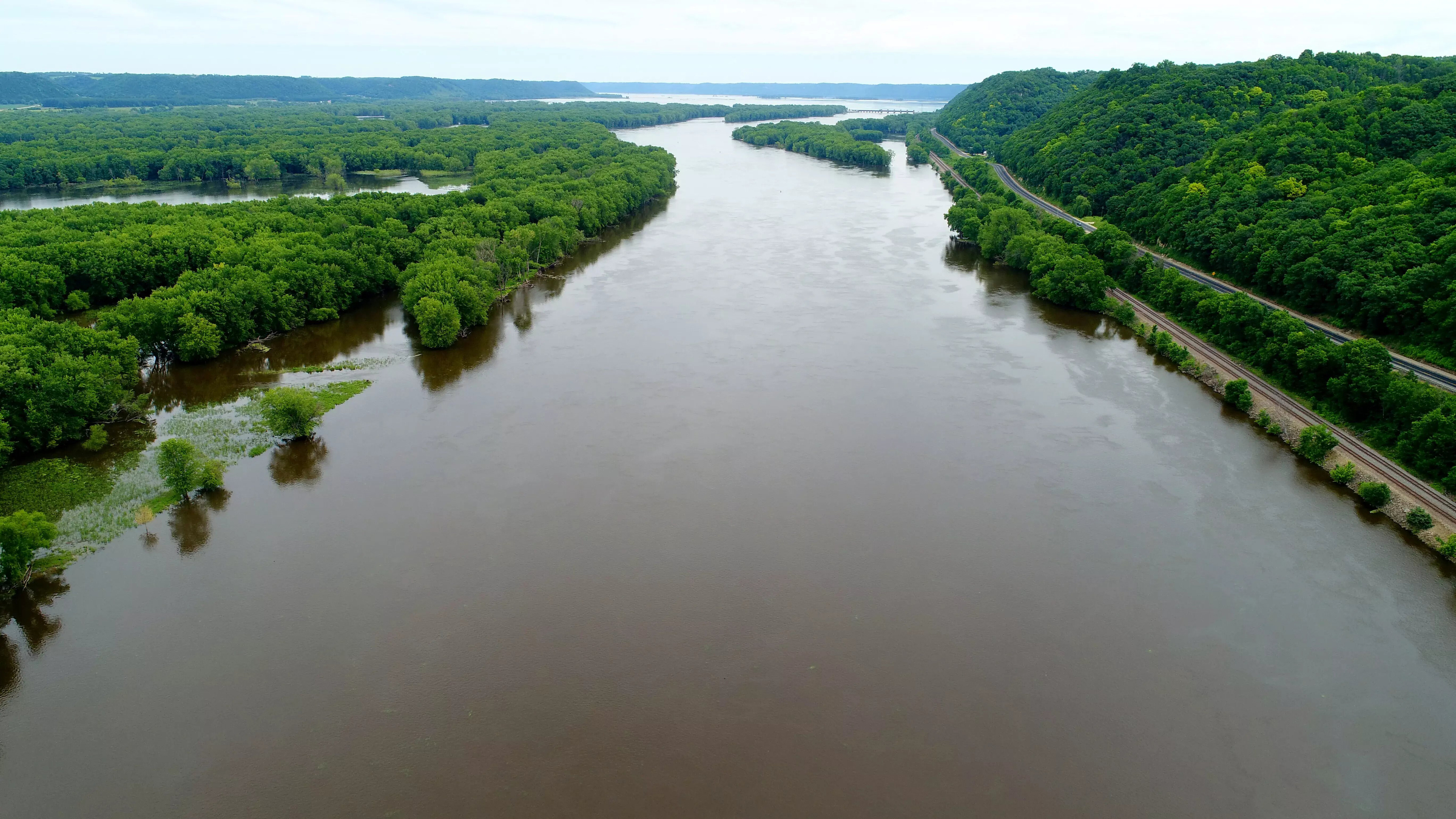
The Mississippi River Basin is home to more than a quarter of the nation’s population, and it drains across roughly 40 percent of the country. The Mississippi Flyway is also home to hundreds of species of birds. A Mississippi River Compact would aim to collectively manage water resources across 10 states: Minnesota, Wisconsin, Illinois, Iowa, Missouri, Kentucky, Tennessee, Arkansas, Mississippi and Louisiana.
La Crosse Mayor Mitch Reynolds, the group’s co-chair, said the river generates nearly $500 billion annually and provides drinking water to around 20 million people.
“It’s crucial in my mind to our economies, as well as national security, to maintain the habitat of the river, to maintain the integrity of the Mississippi,” Reynolds said. “Protecting the Mississippi from diversion efforts helps achieve those goals, and a compact will guard against any attempts to divert in the future just like what has occurred with the Great Lakes Compact.”
Eight Great Lakes states and two Canadian provinces banded together in the early 2000s to develop the Great Lakes Compact, which was signed into law by former Republican President George W. Bush in 2008. The landmark agreement bars diversions of Great Lakes water outside the basin with limited exceptions.
David Strifling, director of the Water Law and Policy Initiative at Marquette University, said the resolution is the first step in “a journey of 1,000 miles” to develop a compact that would require approval from multiple state Legislatures and the federal government.
“I think it’s going to be pretty difficult. I have some doubts about whether the Great Lakes Compact would be possible today in this political climate,” Strifling said. “It was hard enough 20 years ago to put together. … These are very diverse states, and I see it as quite challenging.”

Reynolds and Wellenkamp acknowledge the process will likely be an uphill battle, but they highlight the river’s own struggles with drought in recent years. The 2012 drought cost the nation $35 billion in losses, resulting in the river closing to barge traffic at least three times. Last year, a drought that revealed sunken ships and delayed shipping caused an estimated $20 billion in losses, and parts of the river are seeing record low levels again this year. Reynolds said drought and low water levels have the potential to cripple economies along the river, including in Wisconsin and Minnesota.
The prospect of piping water from the Mississippi River to water scarce states out West would be extremely costly and span decades. A 2012 study by the U.S. Department of the Interior’s Bureau of Reclamation examined potential water supplies to meet demand in the Colorado River basin, including importing water from the Missouri and Mississippi Rivers.
Diverting water out West would cost at least $1 billion, and the study estimated it would be at least 30 years before it’s available. While some say it’s a pipe dream, Reynolds said there are pipelines that carry oil all over the country.
“I would dare to say that water is a far more critical resource than oil is, and I would not bet against efforts of folks to try to divert water from the Mississippi in order to continue unsustainable growth in the southwestern United States,” Reynolds said.
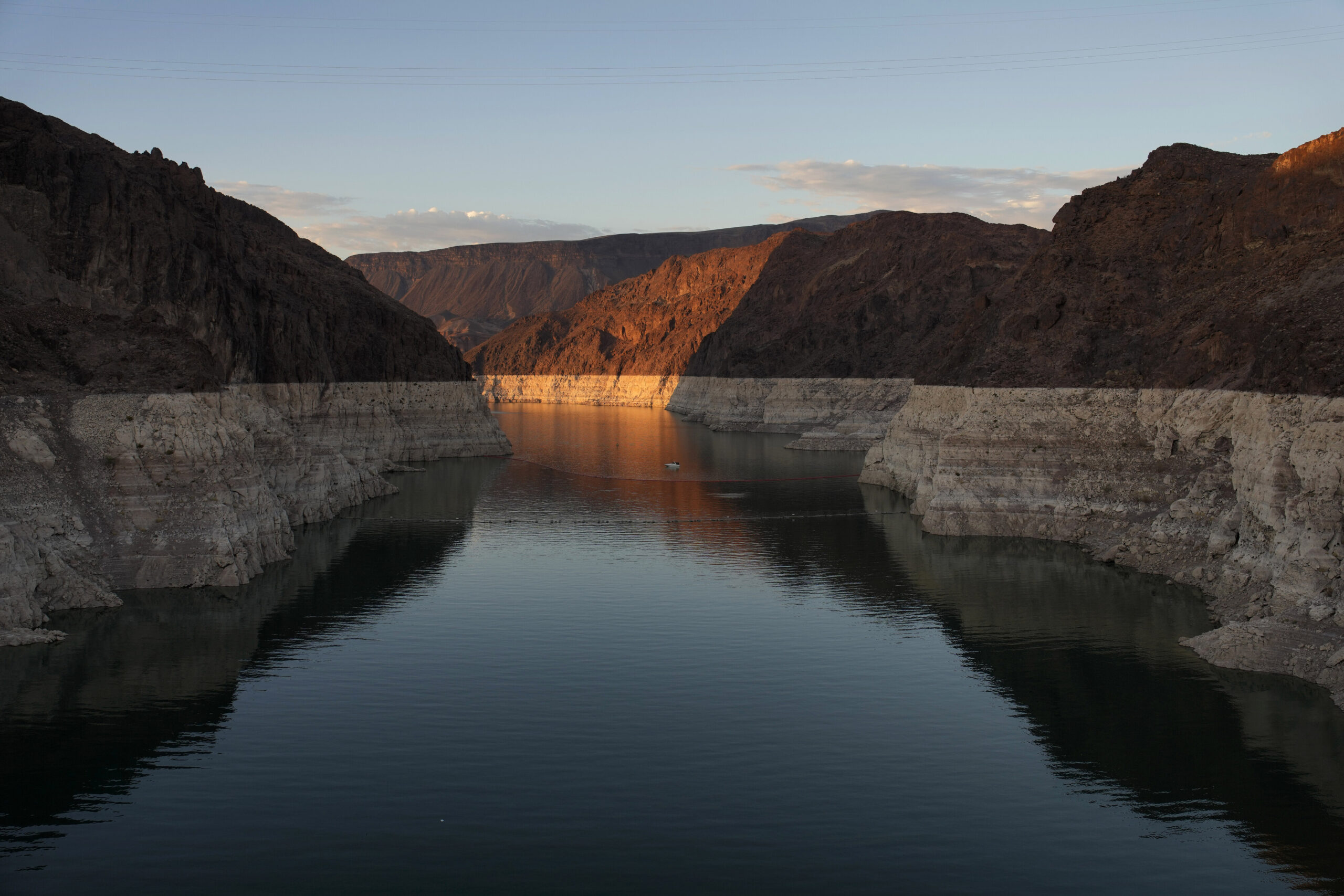
Alternative water supply options examined in the 2012 study, including long-range diversions, were estimated to cost billions of dollars, according to Kim Mitchell, a senior policy advisor with Western Resource Advocates. The nonprofit conservation group focuses on policies to reduce water use and improve water planning in the West. She said the study found large-scale diversions pose challenges with high energy needs, permitting and potential legal challenges due to their size and regional extent.
Mitchell said any importation of water to the Colorado River basin would likely mean renegotiating the Colorado River Compact, which equally distributes water from the system.
“When you couple all those factors with the unpredictable weather patterns that science tells us is occurring with climate change, forecasting flood years will be even more unpredictable in the future,” Mitchell said. “So, is it wise to spend all this huge investment towards a project where we don’t even know if central states along the Mississippi — they may experience long-term drought of their own in the future just like us.”
Climate scientists say it’s uncertain what droughts will look like in the future across the Midwest. Even so, some researchers say global warming will promote drought and intense rain as the Midwest has experienced wetter conditions and adverse effects from dry years like 1988 and 2012. A 2018 report from a United Nations panel of scientists found extreme storms can lead to flooding in the Mississippi River and other large systems that cause drinking water contamination, damage infrastructure, disrupt barge traffic, cause health-related issues or lead to nutrient runoff.
Some advocates, including Kelly McGinnis, executive director of the Mississippi River Network, would like to see a compact touch on more than just diversions. The network is a collaboration of nearly 70 organizations that are focused on the health of the entire system.
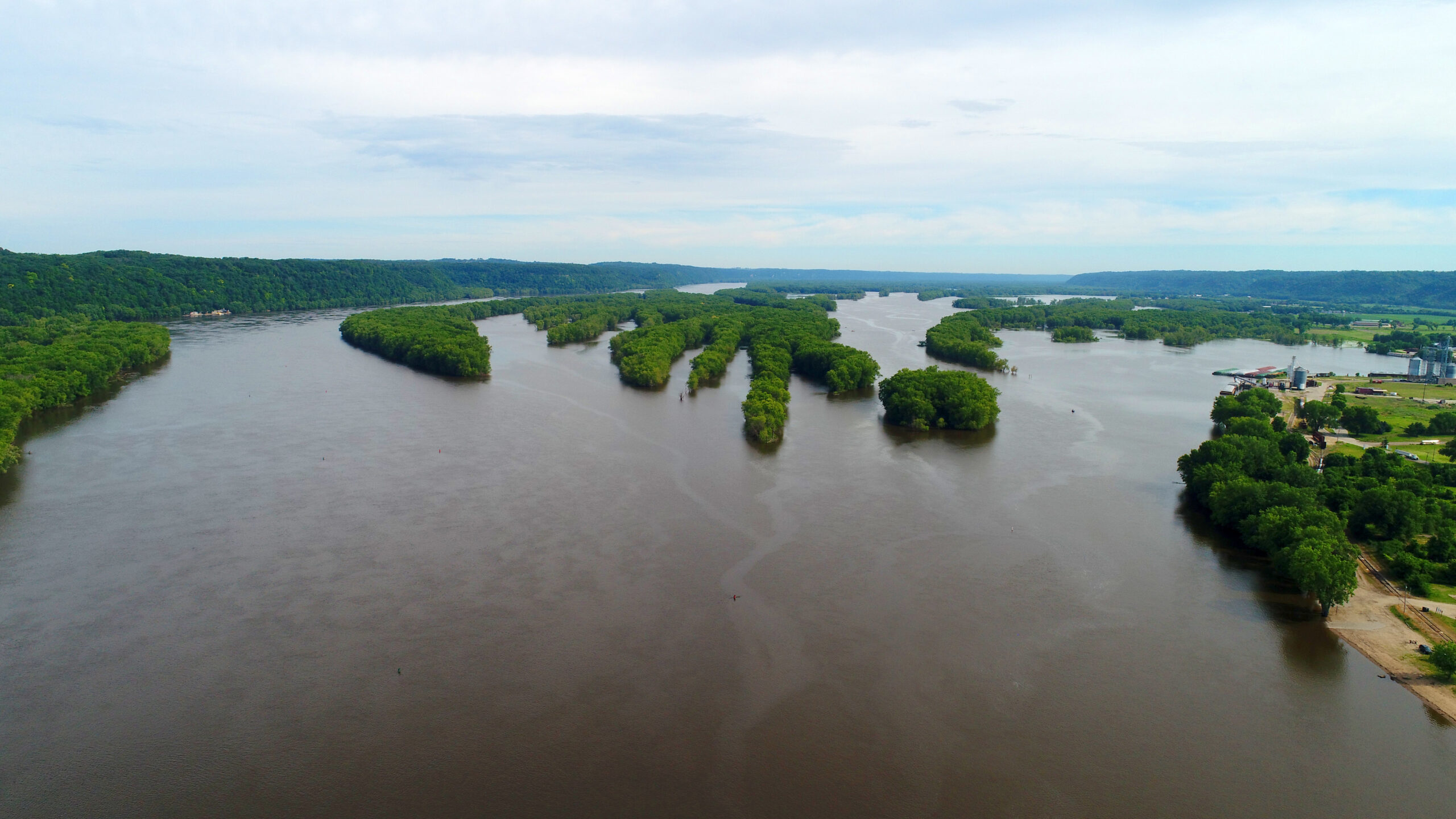
“I would like to see it be not just about water quantity but about water quality. I think that’s essential,” McGinnis said. “I think a compact that simply dealt with diversions … would be a missed opportunity to manage the river in a holistic way.”
Strifling agreed that the river could benefit from more than a prohibition on diversions.
“It should be about joint management of the river basin and things like nutrient control and water quality and groundwater in the basin, not just about surface water diversion,” Strifling said.
Wellenkamp said the ultimate goal is a compact that would protect water within the Mississippi River Basin and the ecosystem and environmental services that it provides. The group also signed an agreement to collaborate with Indigenous nations, including the Red Lake and White Earth Nations and the Leech Lake Band of Ojibwe in Minnesota.
While the road may be long, Wellenkamp said there’s more urgency as people see the political, cultural and economic costs of doing nothing as the basin deals with the effects of climate change.
“We have more to lose if we don’t pursue this arrangement or one like it,” Wellenkamp said.
Wisconsin Public Radio, © Copyright 2025, Board of Regents of the University of Wisconsin System and Wisconsin Educational Communications Board.

